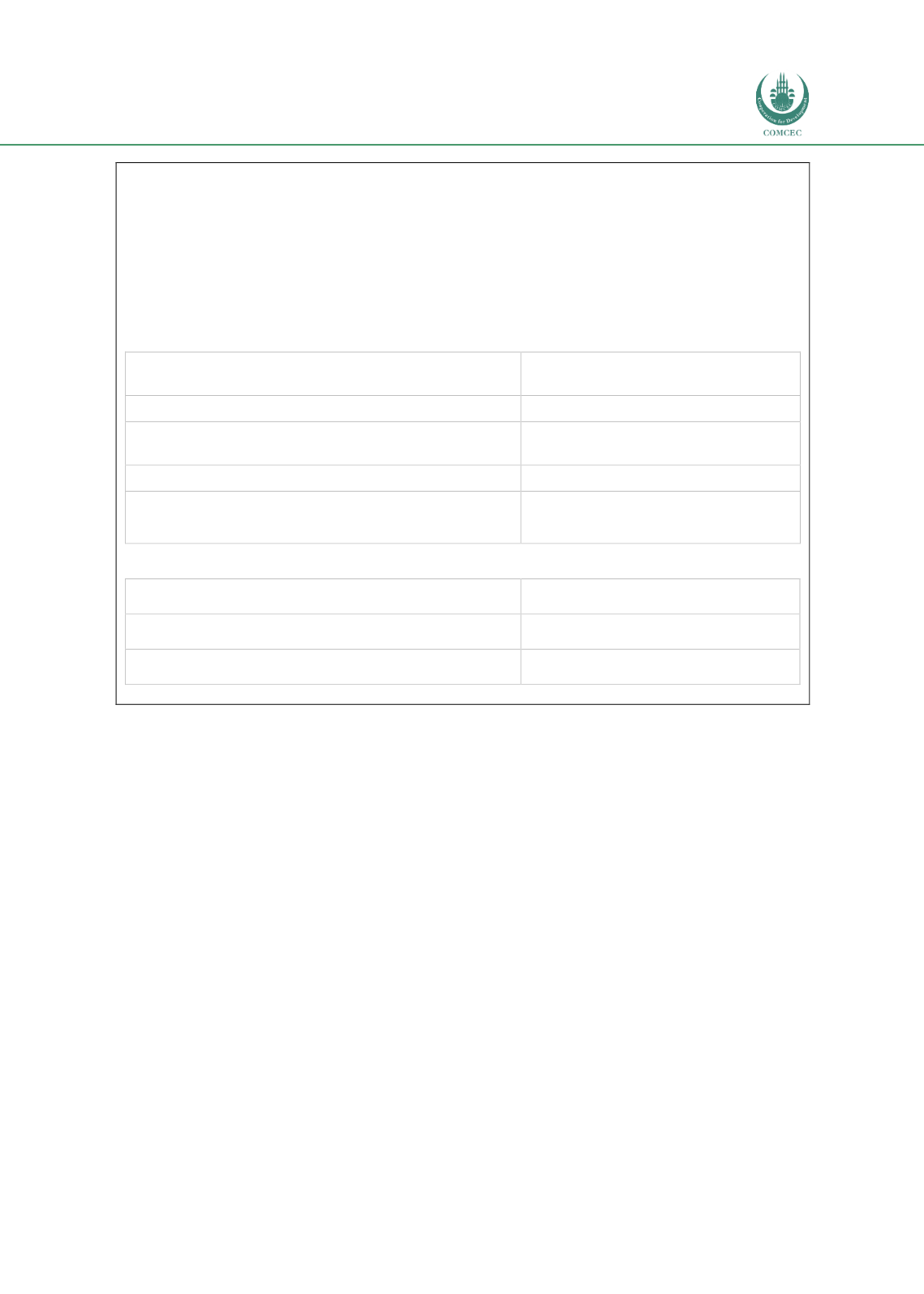

Islamic Fund Management
113
Formation cost under the CIS, not exceeding 1%
of the pre-IPO capital in the case of an open-
ended fund and 1% of the paid-up capital in the
case of a close-ended fund, or five million
rupees, whichever is lower.
Taxes, fees, duties and other charges applicable
to the CIS on its income or properties, including
taxes, fees, duties and other charges levied by a
foreign jurisdiction on investments made
oversees.
Fees payable to the Commission.
Any other expense or charges as may be allowed
by the Commission.
Maximum Limit for the Allowable Total Expenses of a Fund:
Equity, balanced, asset allocation and capital-protected
(dynamic asset allocation-direct exposure) schemes
Up to 4%
Money market
Up to 2%
Income, aggressive income, capital-protected, index and
commodity schemes (cash settled)
Up to 2%
Commodity schemes (deliverable)
Up to 3%
Fund of funds
Up to 2.5% if management fee is charged
Up to 0.5% if no management fee is
charged
Maximum Limit for Management Fees under Different Funds
Equity, balanced, asset allocation and capital-protected
(dynamic asset allocation-direct exposure) schemes
2% of average annual net assets
Income, aggressive income, index, fund of funds and
commodity schemes (cash settled)
1.5% of average annual net assets
Money market, commodity schemes (deliverable) and
capital-protected schemes
1% of average annual net assets
Source: SECP (2008)
Nonetheless,
the real challenge lies in the effective implementation and enforcement of the
laws and regulations. Supervision and enforcement capabilities also need attention as there
are some gaps, especially for self-regulatory organisations (SROs).
Shariah Governance Framework
Comparable to Malaysia, Pakistan has a robust Shariah framework vis-à-vis the governance
and compliance of Islamic capital-market activities, particularly Islamic funds-related
businesses. To comply with international best practices and to promote harmonisation and
standardisation in the business operations of Shariah-compliant companies across the
industry, the regulator, i.e. the SECP, has been issuing notices for the adoption of various
AAOIFI Shariah Standards since January 2016.
The SECP has established its central Shariah Advisory Board to provide opinions on Islamic
capital market-related matters. The Board regularly reviews the regulatory framework for
Shariah compliance and evaluates Islamic financial accounting standards in consultation with
industry stakeholders―to ensure uniformity in the Shariah governance and compliance
processes.
















